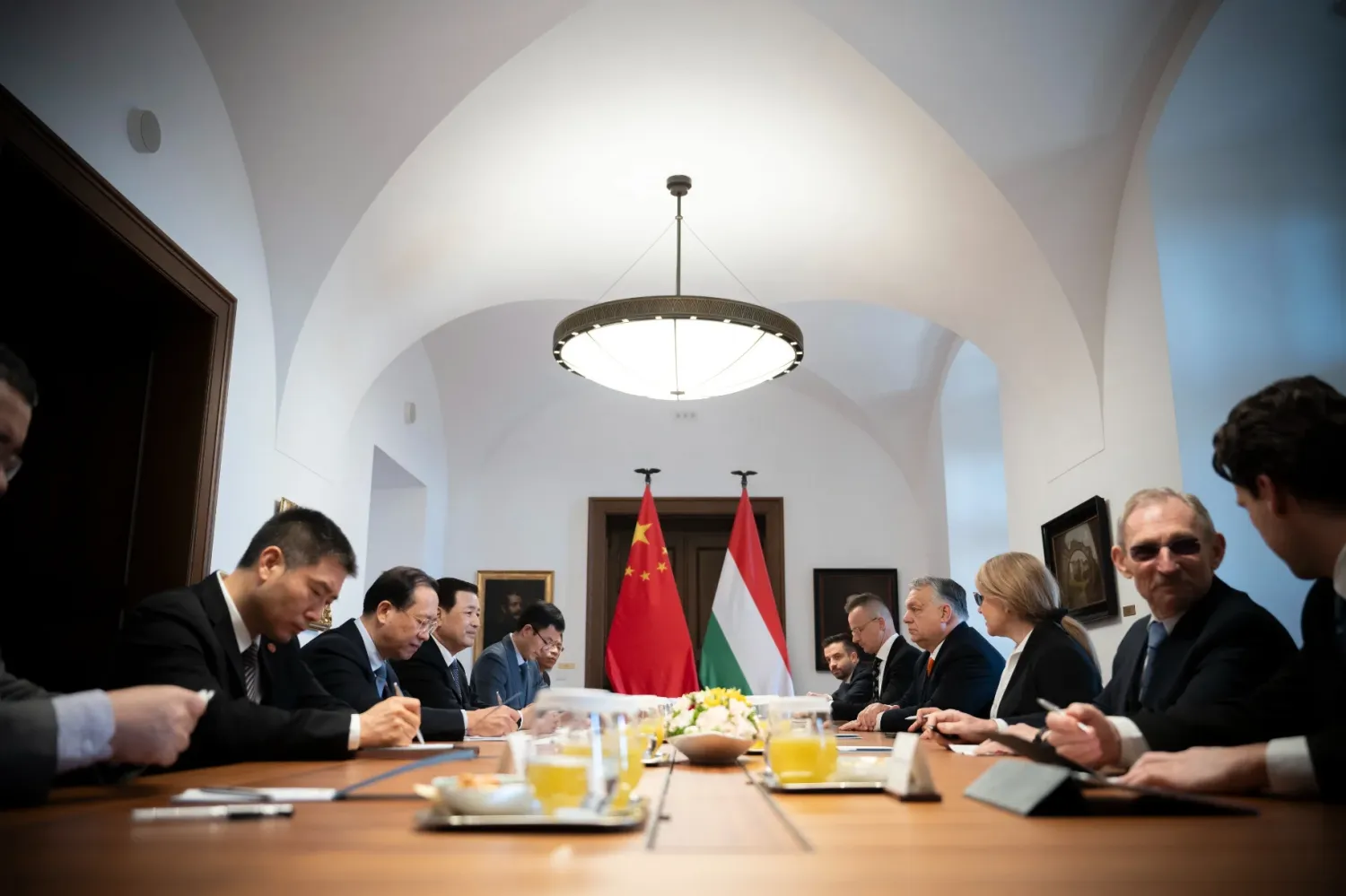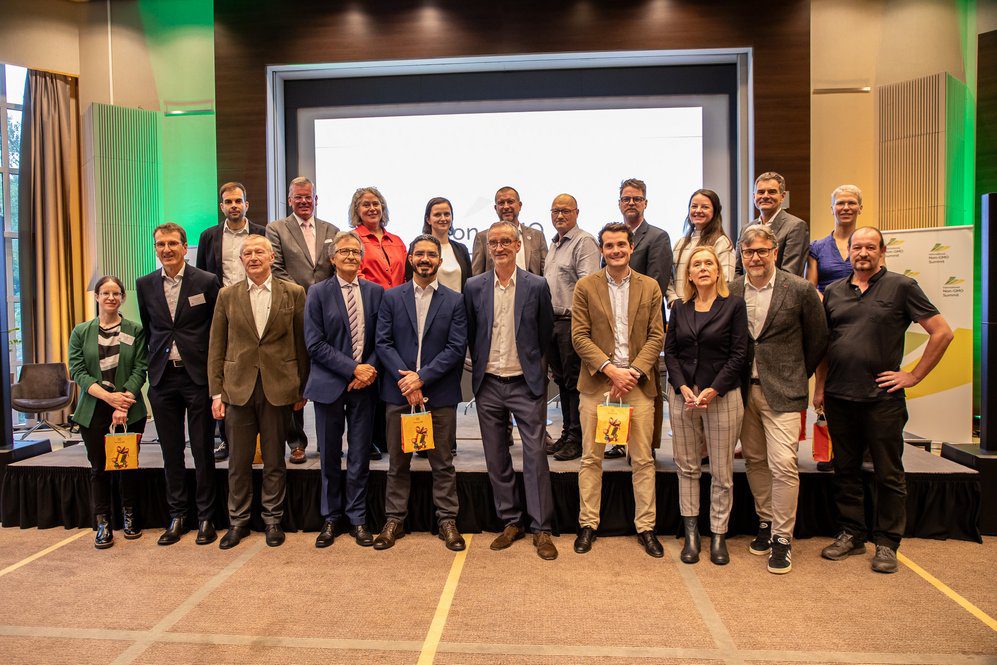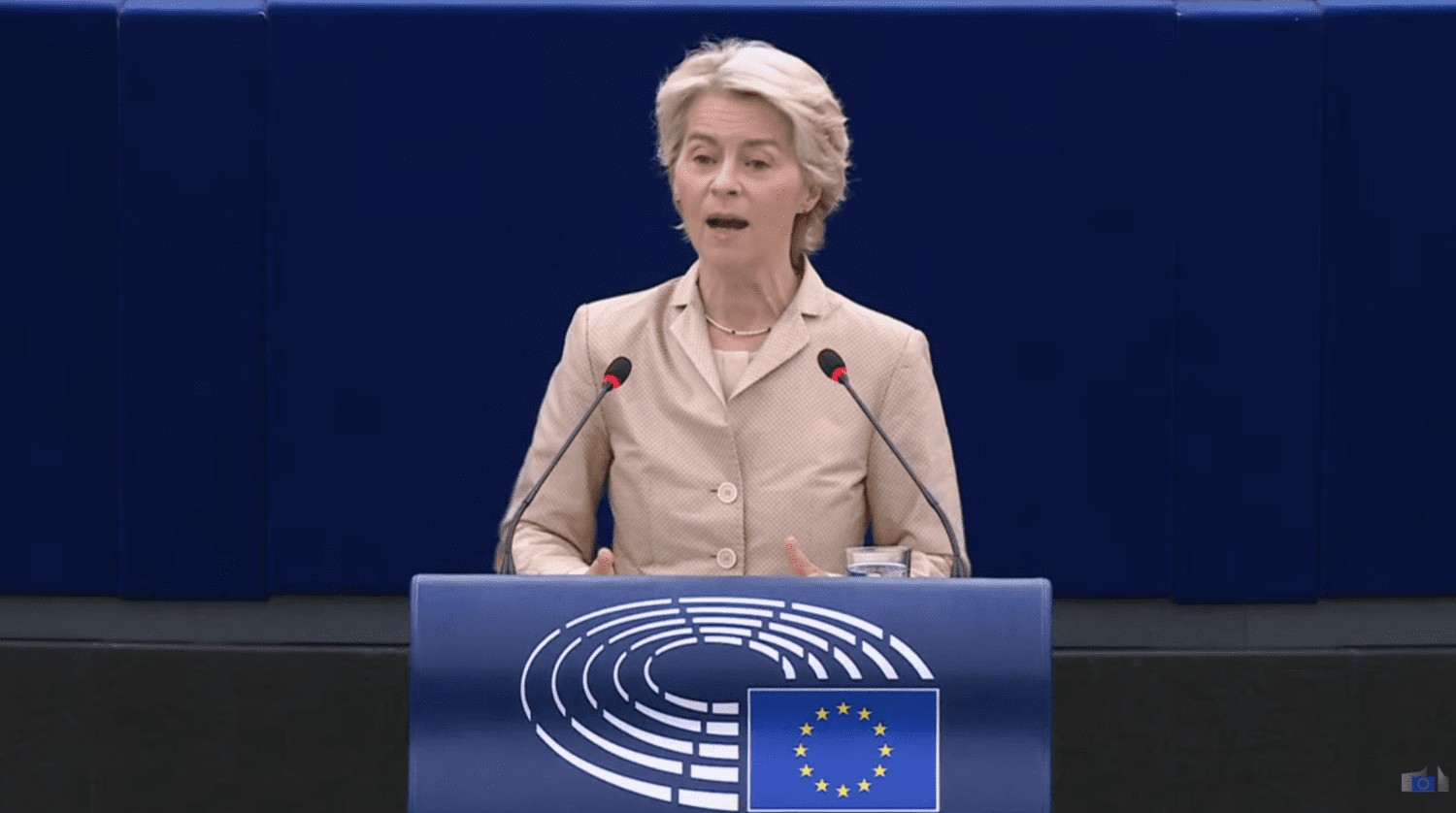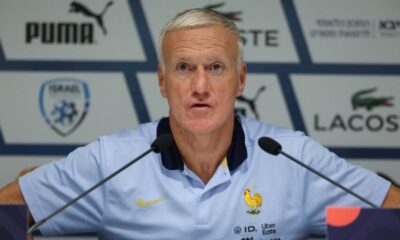Politics
Hungarian Patriots at stake, China police take the streets of Hungary

The presence of Chinese police in Hungary is not just a fleeting event; it marks a potentially transformative moment in Hungary’s foreign relations and internal security strategies. As the collaboration between Budapest and Beijing deepens, analysts are closely monitoring how this shift will affect Hungary’s role within the European Union, where skepticism towards Chinese influence has heightened in recent years.
Critics of the partnership argue that it could lead to a normalization of foreign police presence on EU soil, which raises fundamental questions about the protection of individual rights. The EU has long upheld values of democracy and human rights, and the introduction of officers from an authoritarian regime like China’s presents a stark contrast to those principles. Human rights organizations within Europe are voicing their concerns, warning that normalizing such cooperation could embolden repressive practices in Hungary and possibly in neighboring countries as well.
Furthermore, this collaboration occurs against a backdrop of geopolitical tension, particularly as the West grapples with the implications of China’s global ambitions. The United States and its allies have been increasingly vigilant regarding China’s influence in Eastern Europe, viewing Hungary’s actions as a potential gateway for further Chinese penetration into the EU.
Hungary’s ongoing partnership with China is part of a broader trend wherein Central and Eastern European countries are increasingly looking to Beijing for investment and strategic alliances. This phenomenon, often referred to as the “16+1 initiative,” has drawn a mixed response from EU officials who worry that it undermines the union’s cohesive stance on issues such as human rights and security.
As public awareness of the implications of this collaboration grows, it remains to be seen how the Hungarian government will navigate the pushback from civil society and EU institutions. The coming months will be critical as Hungary assesses its commitment to longstanding democratic values in light of its evolving relationship with China.
Politics
2024 Non-GMO industry calls for transparency and fair cooperation throughout the whole value chain

Frankfurt/Main, More than 160 representatives from a thriving international Non-GMO industry and leading European associations from 23 countries and four continents met on 7th and 8th October 2024 at the ‘International Non-GMO Summit 2024’ in Frankfurt. Operators across the full Non-GMO value chain are united in battling the current challenges posed by the planned deregulation of New Genomic Techniques, as proposed by the EU Commission. The participants at the Summit gave a clear message for freedom of choice and transparency.
“The Non-GMO sector is here to stay!”
On behalf of the organisers, Alexander Hissting, Managing Director of VLOG emphasised: “Non-GMO markets are economically very successful and are thriving with strong support from consumers. We are ready and willing to face current political and market challenges.“ The organisers are convinced that NGTs should be strictly regulated, just like all other GMOs. Hissting’s clear message: “The Non-GMO sector is here to stay!”
High-level political support, advocating freedom of choiceThe current Hungarian Presidency of the Council of the European Union and the German Federal Ministry of Food and Agriculture (BMEL) want to work towards a compromise in the revision of the EU‘s GMO legislation that ensures consistent labelling, coexistence and traceability in dealing with new genetic engineering techniques (NGTs). In his welcoming address, Dr. István Nagy, current President of the EU Council for Agriculture and Fisheries, stated: “I am convinced that the precautionary principle should be applied when new technologies are used and organisms produced with such techniques are released into the environment and the food chain. Furthermore, I consider it to be of the utmost importance to provide consumers with adequate information and to guarantee their freedom of choice.”
German State Secretary Silvia Bender criticised the European Commission’s draft regulation on NGTs, doubting that it sufficiently takes into account the interests of consumers, farmers and food processors: “The market for Non-GMO products has been growing for years and we want to preserve this added value. To do this, we need functioning coexistence measures, from seeds to consumer. Our goal is to find a compromise for a socially acceptable way of dealing with the new genetic engineering methods, and we are working on that,” Bender explained.
Call to strengthen critical voices in the EU: Keeping Europe GMO-free
Dietmar Vybiral from the Austrian Ministry of Health gave a detailed update on the current standstill with the negotiations around the planned revision of the EU’s GMO legislation. He explained that as Ministers at the EU Council could not yet agree on a “general approach”, trilogue negotiations between the three main EU institutions cannot start. Mr Vybiral called on those at the Summit to: “strengthen the critical voices in their respective governments to vote against a deregulation of NGTs.” He continued: “Austria has always stated that NGTs must be regulated as GMOs. Therefore, all NGTs products must have a proper risk assessment, must be labelled and have traceability assured – only this can ensure consumers’ knowledge and freedom of choice.”
The coordinator of the European DARWIN project, Odd-Gunnar Wikmark from the Norwegian research institute NORCE, reported on future-oriented research into reliable detection methods for NGTs. “It will be possible to develop detection methods for known varieties of NGTs. And we are confident that in time also untargeted detection methods will be developed.”
Hans-Peter Dejakum, representative of the premium wafers and chocolate producer Loacker from South Tyrol, believes in the high value of excluding GMOs from the company’s supply chains: “We are tracking consumer wishes in around 70 countries and we know that our customers truly want our Non-GMO products. In the last decade we have substantially invested to build up a credible Non-GMO value chain and we definitely want to continue this way.” Loacker exports its product with Non-GMO label to more than 100 countries worldwide.
Good availability of soy, rapeseed and corn – but even more potential
International experts in the field of raw material production and agricultural trade agreed that the most important regions for non-GMO commodities (especially soy, corn, rapeseed) currently have good market coverage – in Latin America (especially Brazil) as well as in Europe (especially Ukraine). There are also sufficient growth opportunities to further increase the availability of GMO-free feed and thus keep pace with rising demand. The supply of GMO-free goods is secured for this year and the next, explained Bertalan Kruppa, Donau Soja, Maxime Montserrat, Bunge and Daniele Marcomin, Agribusiness di Covolato in their presentations on the current situation on the international markets.
“Keep calm and carry on!”
Heike Moldenhauer, Secretary General of ENGA, concluded the Summit on behalf of the organisers, with a clear call to the Non-GMO industry present “to keep calm and carry on”. The battle for the right to continue to produce without GMOs is far from over, Moldenhauer stated: Currently there are hardly any New GMOs on the global markets – none in the EU, just a handful in countries where New GMOs have a non-regulated status. Therefore, markets will not be flooded with New GMOs in the coming years – as a glance at the companies’ development pipelines shows.
In addition, the exploration of audit strategies and research on detection methods and improvements in traceability have picked up speed. Moldenhauer is confident that significant progress will be reached to exclude New GMOs from Non-GMO value chains
Politics
The Chancery Lane Project unveils climate clauses for Japanese and German markets

London, U.K. 8 October 2024: UK-based, nonprofit The Chancery Lane Project (TCLP) has launched six new foreign-language climate clauses — three German and three Japanese. These clauses help organisations integrate net zero commitments into their contracts, making it easier to meet climate targets with accountability and impact.
The Chancery Lane Project (TCLP) is a pioneering nonprofit that equips organisations with free, cutting-edge legal tools (guides, clauses, and glossary terms) designed to reduce emissions and drive real climate action. Large companies like Telstra, Salesforce, Vodafone, NatWest, and Cambridge University Press are leveraging TCLP’s climate clauses to embed sustainability into their operations.
The release of these six country clauses marks the first time the organisation has published climate clauses in a foreign language. The Japanese clauses are the nonprofit’s first set published specifically for an Asian jurisdiction.
These Japanese and German clauses solve a range of different climate issues for organisations:
- Riku’s Clause provides climate change clauses for Heads of Terms, making climate a key consideration for any deal team.
- Sakura and Sora’s DDQ is a due diligence questionnaire for corporate mergers and acquisitions.
- Sumire’s Clause (transposed from Agatha’s Clause) gives customers a right to switch suppliers if their existing supplier cannot match a ‘greener’ offer made by an alternative supplier.
- Fenjas-Klausel is an ESG-oriented remuneration and compensation clause for executives.
- Pauls-Policy guides companies towards greater social responsibility through ESG-aligned corporate governance.
- Uwes-Klausel is an employment contract clause tied to ESG.
Natasha Morgan, Head of Legal Content at The Chancery Lane Project commented:
“With the rise of climate regulations worldwide, such as the CSDDD and the German Due Diligence Supply Chain Act, legal frameworks are becoming critical tools for real climate action. Our new Japanese and German climate clauses empower organisations to take meaningful steps toward net zero, embedding sustainability into the heart of their contracts. This is more than just legal compliance—it’s about driving change from within.”
The Chancery Lane Project is committed to supporting companies globally to decarbonise contracts. Today’s announcement follows the recent publication of new English language international clauses in the US, Germany, Australia and Italy.
Politics
Hungary’s Role in Europe’s Future: Von der Leyen on Crisis, War, and Economic Growth

On a day that marked significant reflection and determination, Ursula von der Leyen, the President of the European Commission, addressed the European Parliament, focusing on key issues impacting Hungary, Ukraine, and the wider European Union. With a tone of solidarity and unity, she emphasized the importance of collective action in tackling the pressing challenges of our time: from climate change and migration to competitiveness and the ongoing war in Ukraine.
The Aftermath of Extreme Weather in Central Europe
The speech opened with von der Leyen expressing solidarity with Hungary and Central Europe after devastating floods, which delayed the meeting by three weeks. She described the extreme weather as a consequence of climate change, highlighting that “five months’ worth of rain fell on Central Europe in just four days.” The magnitude of the floods was unprecedented, causing destruction to landmarks, crops, and industries across the region, particularly in Budapest.
However, amidst this devastation, von der Leyen applauded the resilience of the Hungarian people: “In these three weeks, we have seen the people of Hungary rolling up their sleeves and helping one another.” She emphasized that Europe would stand by Hungary, stating, “The European Union is there for the people of Hungary in this emergency and beyond.” The European Commission had already mobilized its Copernicus satellites to aid in the rescue efforts, and Hungary was encouraged to access the EU’s Solidarity Fund to rebuild.
Supporting Ukraine Through Its Hardest Winter
Von der Leyen shifted the focus to Ukraine, a country heading into its third winter of war with Russia. The situation has worsened as Russia continues its assaults, launching over 1,300 drones on Ukrainian cities in the past month alone, targeting essential energy infrastructure and causing widespread destruction. In a powerful rebuke to those who downplay Russia’s aggression, von der Leyen asked, “Would they ever blame the Hungarians for the Soviet invasion in 1956? Would they ever blame the Czechs or Slovaks for the Soviet repression of 1968?” She emphasized that the Ukrainian people are freedom fighters, much like the heroes who liberated Central and Eastern Europe from Soviet rule.
Europe’s response to the war is unwavering. Von der Leyen announced that the EU, alongside the G7, had pledged €50 billion to Ukraine, of which €35 billion would come in the form of loans to support the country’s national budget. Critically, these loans would be repaid using the windfall profits from immobilized Russian assets. “We are making Russia pay for the damage it caused,” she asserted, emphasizing Europe’s continued support for Ukraine “through this winter and for as long as it takes.”
Enhancing European Competitiveness
The next priority in von der Leyen’s speech centered on improving European competitiveness. She referred to the Draghi report, which provided a roadmap for strengthening the EU’s economic future. The primary concern raised was the “innovation gap” between Europe and other major economies, particularly in the digital space. “Too many of our innovative companies have to look at the United States or Asia to finance their expansion,” she noted, pointing out that while European households have €300 billion in savings, much of it is invested outside the continent.
Von der Leyen proposed a solution: the creation of a savings and investment union, aimed at eliminating barriers that prevent companies from scaling up across European borders. To boost competitiveness, she suggested a reduction in regulatory burdens, especially in sectors like finance and digital technologies.
However, the president took a firm stance against Hungary’s current policies, criticizing the Hungarian government for its discriminatory practices towards European businesses. She questioned how Hungary could hope to attract investments when it imposes arbitrary export restrictions, discriminatory taxes, and allows corruption to flourish in public contracts. “This creates uncertainty and undermines investors’ trust,” she warned, pointing out that Hungary’s GDP per capita had fallen behind its Central European neighbors.
Decarbonization and Energy Security
Von der Leyen also tackled the issue of decarbonization, a critical part of Europe’s path towards sustainability. In light of the ongoing war, she reminded the parliament of the pledge made by all 27 EU leaders at Versailles to diversify away from Russian fossil fuels. “One thousand days later, Europe has indeed diversified,” she declared, with half of Europe’s electricity generation now coming from renewable energy sources. However, she condemned Member States that still relied on Russian fossil fuels, stating unequivocally that “Russia has proven time and again it is simply not a reliable supplier.”
Her message was clear: energy security is synonymous with European security. Europe must continue its transition to clean, homegrown energy, creating jobs within the EU rather than sending money to Russia.
Migration: A Challenge for Europe
Migration remained a key topic in von der Leyen’s speech. Acknowledging it as a “European challenge that requires a European answer,” she emphasized the importance of implementing the newly adopted Pact on Migration and Asylum. The EU is already working with Member States at its external borders, but von der Leyen expressed concern over Hungary’s approach to the migration issue. She pointed out that Hungarian authorities had released convicted smugglers and traffickers from prison before they had completed their sentences, undermining European efforts to combat illegal migration. “This is not fighting illegal migration in Europe. This is not protecting our Union,” she criticized.
Additionally, von der Leyen highlighted the security risks posed by Hungary’s visa scheme, which allowed Russian nationals to enter the EU without proper security checks. She also questioned the Hungarian government’s decision to allow Chinese police to operate within its borders, describing these actions as threats to European sovereignty.
A Call for European Unity
Von der Leyen concluded her speech with a powerful call for European unity, recalling Prime Minister Viktor Orbán’s words from 2011 when Hungary first held the Presidency of the Council of the EU: “We will follow in the footsteps of the revolutionaries of 1956. We intend to serve the cause of European unity.” Reaffirming that “Europe must stand united,” she addressed the Hungarian people directly, saying, “Your story is our story. Your future is our future. 10 million Hungarians are 10 million good reasons to keep shaping our future together.”
In this critical moment for Europe, von der Leyen’s speech served as both a warning and a reminder of the values that bind the European Union together—solidarity, unity, and a shared commitment to freedom and democracy.
-

 Health & Society6 days ago
Health & Society6 days agoOSCE Workshop Tackles Rising Drug Crisis Among Youth in Central Asia
-

 Sports6 days ago
Sports6 days agoMonza, Adriano Galliani speaks out on Alessandro Nesta
-

 Sports4 days ago
Sports4 days agoFrance vs. Israel without Kylian Mbappé, and Marcus Thuram is in doubt
-

 EU & the World2 days ago
EU & the World2 days agoTropical Storm Leslie’s Path: Where Is the Possible Hurricane Headed?
-

 EU & the World6 days ago
EU & the World6 days agoDouglas Emhoff: 5 Things About Kamala Harris’ Husband
-

 EU & the World5 days ago
EU & the World5 days ago‘A Complete Unknown’: Release Date, New Trailer & More on Timothee Chalamet’s Bob Dylan Biopic
-

 Sports5 days ago
Sports5 days agoTrento loses a piece: stop for Eigirdas Zukauskas
-

 Sports6 days ago
Sports6 days agoThere’s Novak Djokovic: Flavio Cobolli is not looking forward to it








